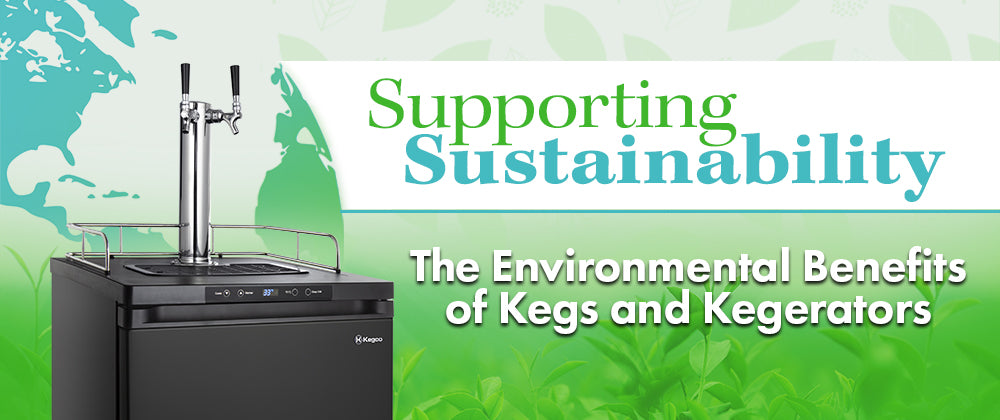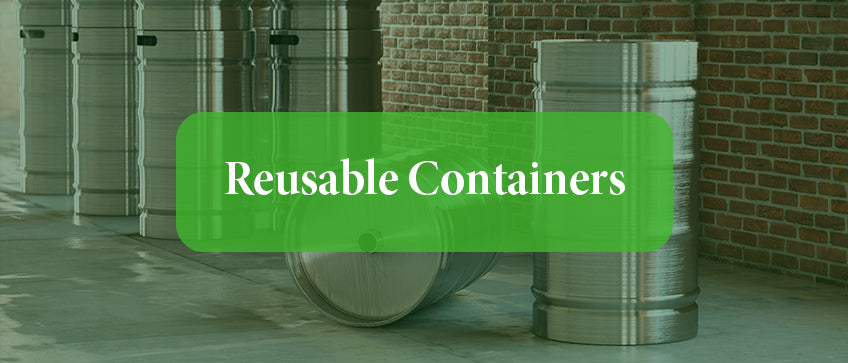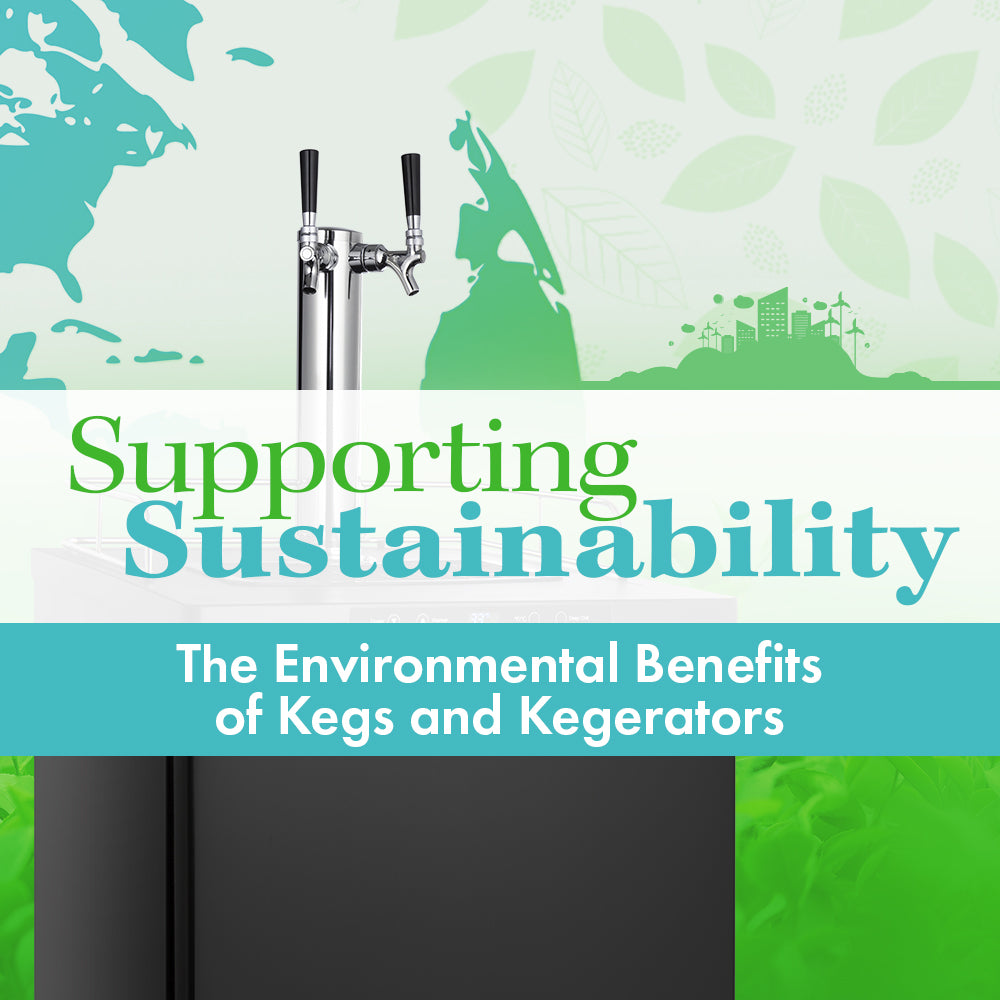
Supporting Sustainability: The Environmental Benefits of Kegs and Kegerators
In a world increasingly focused on sustainability, every aspect of our lifestyle is under scrutiny for its environmental impact. One often-overlooked area where sustainability can be easily integrated is in our choice of beverage consumption. Enter the kegerator - a champion of eco-friendliness in the realm of refreshment.

REDUCE PACKAGING WASTE
One of the most significant environmental advantages of kegerators is their ability to minimize packaging waste. Traditional beverage consumption often involves single-use bottles or cans contributing to the alarming volume of packaging material that ends up in landfills or oceans. Kegerators, on the other hand, utilize refillable kegs, eliminating the need for excessive packaging. By opting for kegged beer, coffee, or carbonated water, individuals can significantly reduce their carbon footprint and contribute to a cleaner environment.
ENERGY EFFICIENCY
Beyond the reduction in packaging waste, kegerators also boast energy efficiency. While refrigeration is essential for both kegerators and conventional refrigerators used to store individual bottles or cans, the larger volume-to-surface area ratio of kegs results in more efficient cooling. This efficiency translates to reduced energy consumption over time, making kegerators a greener choice for chilling your beverages.

REUSABLE CONTAINERS
Kegerators promote the use of reusable containers - a fundamental principle of sustainability. Unlike single-use bottles or cans, kegs are designed to be refilled numerous times, minimizing the demand for new materials and energy-intensive manufacturing processes.
Kegs are also typically made of stainless steel that is recyclable, further minimizing environmental impact compared to disposable packaging materials. By embracing kegerators, consumers can actively participate in the circular economy, where resources are reused and waste is minimized.
TRANSPORTATION AND DISTRIBUTION
Another aspect often overlooked is the environmental impact of transportation and distribution. Kegerators can contribute to sustainability by reducing the frequency of transportation required for beverage delivery.
With fewer trips needed to restock kegs compared to individual containers, kegerators help decrease carbon emissions associated with transportation, further mitigating their environmental footprint.

SOCIAL ASPECT
Finaly, kegerators can foster a sense of community and social responsibility. By investing in a kegerator for shared spaces such as offices, bars, or community centers, individuals have the opportunity to promote a culture of sustainability and responsible consumption.
Sharing beverages from a kegerator encourages social interaction and reduces the reliance on disposable alternatives, thereby promoting environmental consciousness among peers.
In conclusion, kegerators epitomize the convergence of convenience and sustainability in beverage consumption. By reducing packaging waste, promoting energy efficiency, embracing reusable containers, minimizing transportation emissions, and fostering a sense of community, kegerators emerge as a beacon of eco-friendliness in a world striving for environmental stewardship. Embracing kegerators is not just a choice for refreshment; it is a conscious decision to tread lightly on our planet and leave a greener legacy for future generations. Let's raise a glass to sustainability - one keg at a time.
